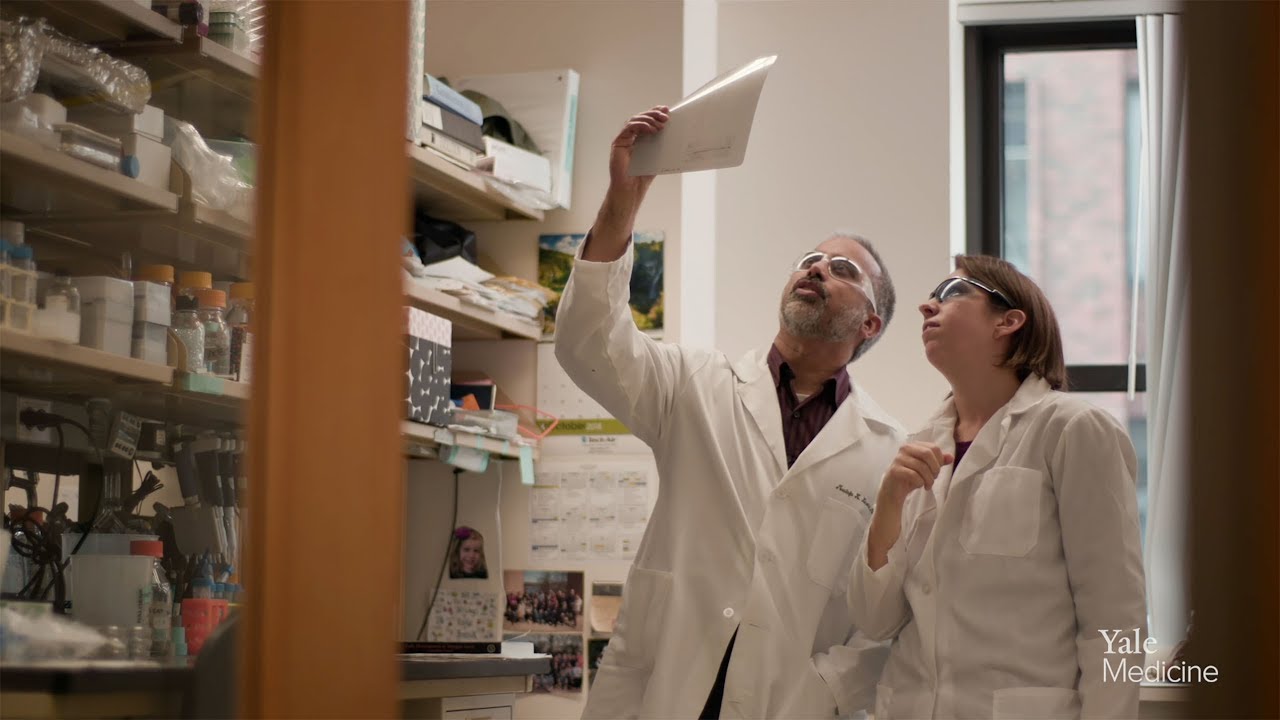A Child’s Genome Leads to a New Discovery

By the time baby Zeke entered his third week of life, he was being cared for by a team of Yale physicians. Reliable treatments like antibiotics and fluids didn’t calm his raging fever, all-over body rash, and severe diarrhea. “He seemed to be getting worse,” says Yale Medicine critical care pediatrician Mustafa Khokha, MD. Sadly, Zeke could not be saved. But the story didn’t end there—several doctors specializing in genetics began searching his DNA for clues.
“Two weeks after Zeke passed away, I got sick as well and had to go to the ER with a severe cough and fever,” says Erik Drewniak, Zeke’s father, who lives in Norwalk. Drewniak went into respiratory failure and spent weeks in the intensive care unit (ICU). As doctors rushed to stabilize him, the genetics team hurried to confirm a suspicion that father and son shared a gene variant linked to severe fevers, which Drewniak had experienced periodically his whole life.
They found the culprit: a genetic mutation that creates severe inflammation, usually brought on by physical or emotional stressors, in the absence of a bacterial infection. Generally, inflammation in the body signals that the immune system is fighting its best battle. But Drewniak and his son both had a rare, auto-inflammatory disease that had never before been identified. Doctors gave Drewniak anti-inflammatory medicine and he began to heal.
“If you want to take care of anyone who is ill, you need to understand the disease process,” Dr. Khokha says.
That process begins with understanding an individual’s genome, their DNA—which acts like an instruction book that contains “directions on how to make you,” says Saquib Lakhani, MD, a critical care pediatrician who joined Dr. Khokha at Yale in 2016.
Together, the two doctors founded the Yale Pediatric Genomics Discovery Program (PGDP) to apply genetic sequencing and rigorous research to help shed light on unexplained illnesses in newborns and children—just as they did for the Drewniaks.
Genomic medicine “is not simply studying an idea or concept, but it’s bringing [results] back to an individual human being and saying, ‘This is how your genome affects who you are,’” Dr. Lakhani says.
This video highlights the work behind the Yale Pediatric Genomics Discovery Program.